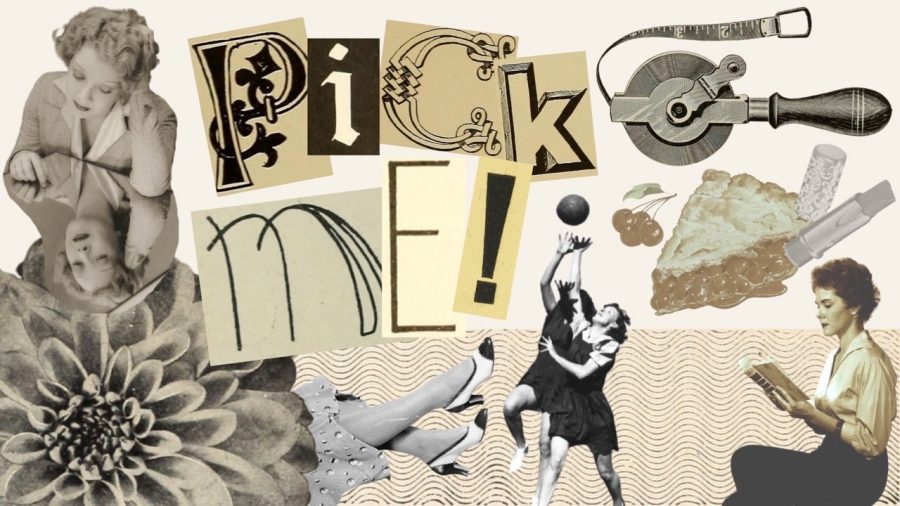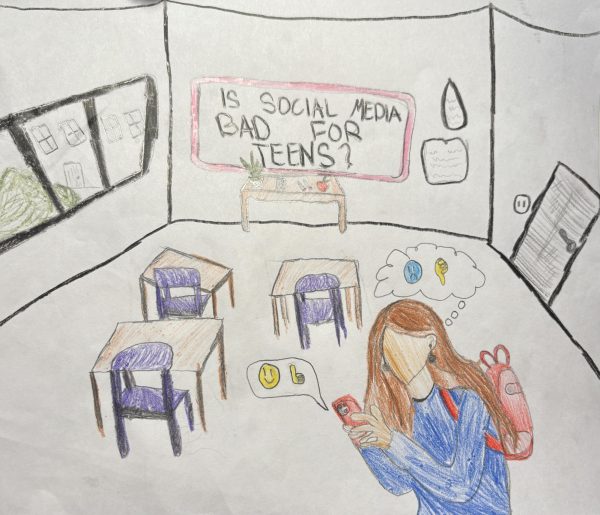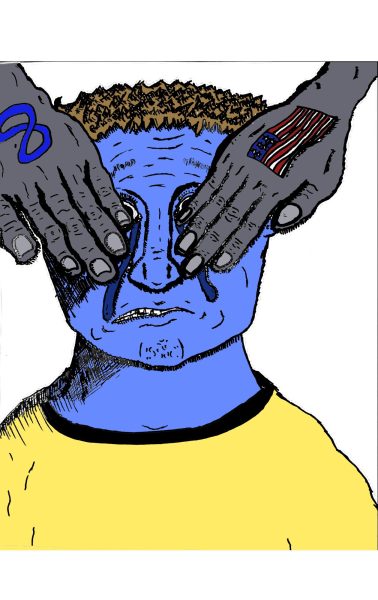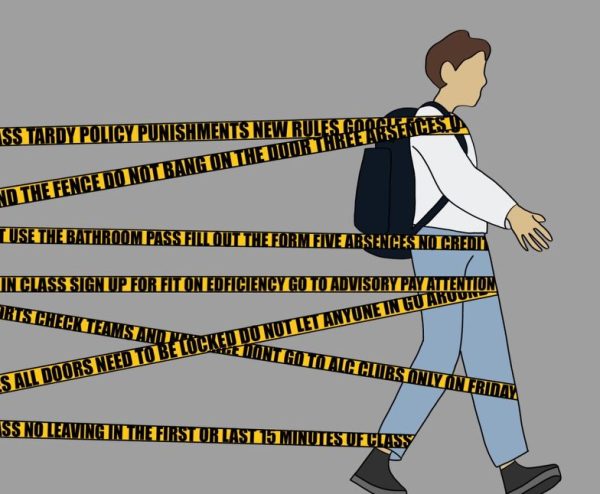The ‘pick me’ girl persists
With centuries of misogyny behind us, social media trends continue to perpetuate judgment against women
Images accessed on Flickr.com, republished here under a creative commons license.
The “pick me” girl trend extends a centuries-old practice of men turning women against each other, a costly diversion that halts progress, preserves a fruitless and prejudicial quest for validation.
December 4, 2021
“I’m not like other girls.”
“I could never wear heels and makeup like you.”
“I can only have guy friends. Girls are too dramatic.”
Over the past year or so, sentiments like these have become a part of a popular trend on TikTok: the “pick me” girl. According to Urban Dictionary, a “pick me” girl “goes out of their way to impress boys and make them seem that they’re ‘not like other girls.’” A bit further down the web page, you will find a more fitting definition: “a woman who acts misogynistic because she wants men to be attracted to her.’”
The “pick me” girl trend is merely one example of the centuries-old practice of men turning women against each other.
Women who fit this stereotype are relentlessly bullied by TikTok users, but they are not to blame. While this trend may seem like lighthearted entertainment, it perpetuates internalized misogyny and encourages women to tear down other women for maintaining an ideology that men have ingrained in our psyches for centuries.
The “pick me” girl trend is merely one example of the centuries-old practice of men turning women against each other. All this does is halt progress, keeping us at the mercy of their prejudice and validation. For example, beginning in the 1700s, young women were expected to have coming out parties or debutante balls, during which they all wore similar clothes and performed synchronized dances. This would make one want to stand out in any way they could to catch the eye of an eligible bachelor. This overcompensation was and is justified.
These women could be considered Georgian era “pick me” girls. They fell victim to the appeal of male validation, and I am not ashamed to admit I have done the same.
It feels good to be told you are superior, but this is an antifeminist mindset that we all must fight to escape, regardless of gender. Outdated stereotypes are not restricted to women. Men face similar challenges. They are told to be macho, never cry and conform to heteronormativity. Any sign of feminine traits is often mocked. This is by no means tolerable, but the difference is that no matter what men do to challenge the status quo, society is far better suited to accommodate them.
These women could be considered Georgian era “pick me” girls. They fell victim to the appeal of male validation, and I am not ashamed to admit I have done the same.
I would also be remiss if I were not to mention the impact of race on western beauty standards. TikTok tends to promote features that mostly white women possess. BIPOC people work the hardest to fit into society in every way. This is simply one facet of the systemic racism plaguing our society, physically and virtually.
There is a perfect woman out there. She wakes up early, works out every day, eats healthy and has an effortless love life. She is the TikTok-approved holy grail of womanhood and goes by the name of “that girl.” I am sorry to say that her image is unattainable. She is a mirage whose job it is to convince women that they are not doing enough to free themselves from prejudice. The truth is that nothing we do is free from judgment.
No one can live up to “that girl” and we should all just stop trying. Bettering ourselves for the sake of validation is a habit that I and many others must break, regardless of gender. The next time you happen upon a TikTok putting down women for reasons having nothing to do with our character, take a moment to remind yourself of the centuries of misogyny that led up to it.
















Lainil O. • Dec 6, 2021 at 12:27 pm
I completely agree. I feel like Tiktok just took this term and ran with it like it usually does with a lot of other things which always ends up being harmful.
Sofia Thatcher • Dec 6, 2021 at 12:20 pm
I agree that pick me girls are an unfair insult to women. Especially since the concept was created on Tiktok an app. I think that its misogynistic and not fair to women to judge them off the idea of having friends of the male gender or just being more masculine in general.
Smith Bohls • Dec 6, 2021 at 10:48 am
I think the idea of a pick me girl has been blown out of proportion. It has come to the point where if you are even just friends with someone of the opposite gender you are automatically a pick me girl, which, I think is very confusing and doesn´t make any sense.
kaela • Dec 5, 2021 at 7:17 pm
I agree this trend is way overdone and modernly misogynistic.
Esme Ostrow • Dec 5, 2021 at 4:45 pm
I agree, and I really like that you went deeper into the origin and past of behaviors like this. I also like that you didn’t categorize pick-me girls as more masculine women like some tik tok users do, calling everyone not feminine a pick-me.
Norah • Dec 5, 2021 at 12:48 pm
I agree with this idea of a ‘pick me’ girl, it’s been around forever but just more recently been categorized. I also agree that nobody can live up to the idea of being a perfect girl that we see on social media.
Sylvie • Dec 4, 2021 at 10:29 pm
I totally agree, I’ve never gotten to think of it like this.